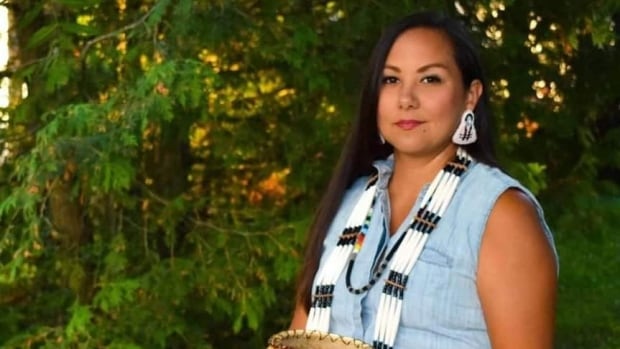
Q & A: Why this Indigenous woman is teaching Ontario students the Anishinaabemowin language
CBC
Nikki Shawana says she feels a sense of responsibility to teach the next generation about Anishinaabemowin culture and language.
She is Odawa nation, Eagle clan and calls Norfolk County home. For the next six months, Shawana will be part of a new Indigenous language program with the Waterloo Region District School Board teaching Indigenous and non-Indigenous students in Waterloo region and beyond.
Class takes place every Saturday and it's open to anyone in Grades 1 through 12.
She joined CBC Kitchener-Waterloo's The Morning Edition to talk about why she wants to teach students about Anishinaabemowin culture and how to speak it.
This interview has been edited for length and clarity.
CBC Kitchener-Waterloo: Why are you interested in helping students learn Anishinaabemowin language?
Well, it's so important to me ... and why I'm so excited that the Waterloo Region District School Board is offering this program is because I know what it's like growing up in southern Ontario and going to school here.
And when I went to school, there was no access to Anishinaabemowin programs anywhere. There was no chance or opportunity, really, for you to learn if you were in southern Ontario and not close to an Anishinaabe community.
But there are many people who would like to learn this language. The fact that it is being offered now and that it's virtual and open to such a wide range of people, I think that's really important and it's just awesome that now it's accessible for people.
CBC K-W: What does it mean to be a part of a program that will give Indigenous students an opportunity to learn a language that, as you say, you didn't have a chance to learn growing up?
It means a lot. It's so important. I was I was looking at some articles yesterday that show when students see themselves in the classroom, when they see themselves in their school board, they do a lot better.
They feel a lot more comfortable and, like I said, when I was young, I didn't have those opportunities. I wasn't able to see myself. I think this helps, Indigenous students feel included and to be able to see themselves and feel really good.
I think it's going to have a positive impact on anybody who joins the class to learn about our language and to learn about the teachings that are in our language — because it's not only words, it's teachings. And it's the way that we see the world and the way that we respect the environment around us.
CBC K-W: Tell us what students are going to be learning about.













